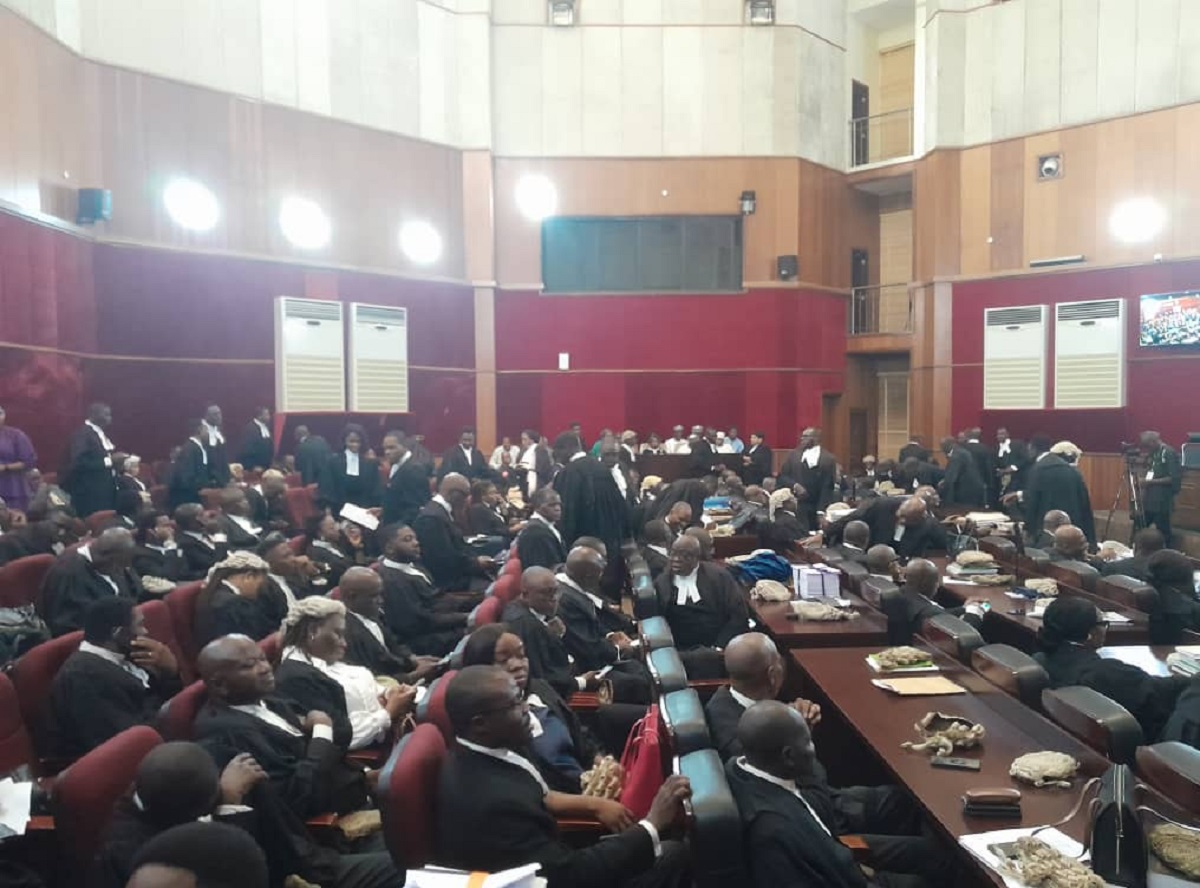Nigeria is on edge as the Presidential Election Petition Tribunal (PEPT) prepares to deliver its verdict on the petitions challenging the election of President Bola Tinubu. The election, held on 25 February 2023, was marred by allegations of fraud, violence, and irregularities.
Tinubu, the candidate of the ruling All Progressives Congress (APC), was declared the winner by the Independent National Electoral Commission (INEC) with 36.61% of the vote, followed by Atiku Abubakar of the People’s Democratic Party (PDP) with 29.07%, and Peter Obi of the Labour Party (LP) with 25.40%1
Both Abubakar and Obi have filed petitions to challenge Tinubu’s victory, claiming that INEC manipulated the results in his favour. They have also accused Tinubu and his party of exerting undue influence on the judiciary and the security agencies to sway the outcome of the tribunal.
A third petition filed by the Allied Peoples’ Movement (APM) is also pending before the court. The tribunal has until 16 September 2023 to deliver its judgement, according to the constitution
However, as Nigerians await the final decision of the PEPT, some unscrupulous elements have taken advantage of the tense situation to spread fake news and misinformation on social media.
In recent days, several reports have emerged online claiming that some judges and officials involved in the tribunal have been compromised or coerced by Tinubu and his allies. These reports have been widely circulated and shared by unsuspecting Nigerians, creating confusion and distrust in the electoral process and the judicial system.
For instance, on Wednesday, a report claimed that Justice Boloukuoromo Ugo, a member of the five-man panel of the PEPT, had resigned due to pressure from the APC. The report also alleged that Ugo had written a letter to the Chief Justice of Nigeria (CJN), Olukayode Ariwoola, accusing him of having a phone conversation with Tinubu about the tribunal case. The report was later debunked by the court as false and baseless.
Similarly, on Tuesday, another report alleged that Ariwoola had a phone call with Tinubu and the Director General of the Department of State Services (DSS), Yusuf Bichi, to discuss how to manipulate the tribunal in favour of the APC.
The report also claimed that Ariwoola had received a bribe of $2 million from Tinubu to influence his colleagues on the Supreme Court bench. The report was also dismissed by the Supreme Court as a fabrication and an attempt to tarnish its image.
Another report that went viral on social media claimed that former Rivers State Governor, Nyesom Wike, had met with some judges in Haruna Tsamani in Malaga, Spain, to plot how to rig the tribunal for Tinubu.
The report also alleged that Wike had offered $5 million each to the judges to deliver a favourable judgement for Tinubu. The report was later exposed as a hoax and a photoshopped image.
These are just some examples of how fake news is being used to influence public opinion and undermine confidence in Nigeria’s democracy and institutions.
Some analysts believe that these reports are part of a coordinated campaign by some political actors to discredit or intimidate the tribunal ahead of its judgement. Others suggest that these reports are meant to put pressure on the judges to act independently and transparently.
According to John Teddy, a popular radio personality in Abuja, Nigerians no longer trust the judicial system, hence some people resort to spreading fake news to monitor and expose any wrongdoing by the judges.
“They are meant to let the judges know that eyes are on them and they should not bow to any pressure,” he told DAILY POST.
“I really don’t think that carrying fake news everywhere is the best way but it is good to put a little fear in them (judiciary) so that the highest bidders will not always have the final say.”
He added that Nigerians are eagerly waiting for the tribunal’s verdict, which will determine the fate of their country.
“As it is right now, the destiny of this country depends on the decision of these judges and like it or not, it won’t be an easy judgement. There are pressures already.”
However, the Director General of Voice of Nigeria, VON, Mr Osita Okechukwu appealed to Nigerians to exercise patience and allow the tribunal to do its job.
He urged social media users to steer clear of misleading the public with fake news, citing the gravity of the matter in court.
He said, “This is a very important matter as far as the country is concerned. Nigerians should pay more attention to what is coming from the mainstream media not what is flying here and there on social media.
“The truth is that social media has come to stay, you have nothing to do about that, but we should know that not every report dished out on social media is correct.
“This is a platform where someone can wake up in the morning, pick up his smartphone and write anything he wants.
“So you can’t take the contents on social media seriously. Gone are the days when such reports emanated from the traditional media and the government would go and close down the platform, you can’t shut down social media.
“All we need to do is to guide ourselves on what to believe. If Justice Ugo had resigned as speculated on social media, the report would be everywhere, not just one person sitting somewhere and telling you that so-so person resigned.”
